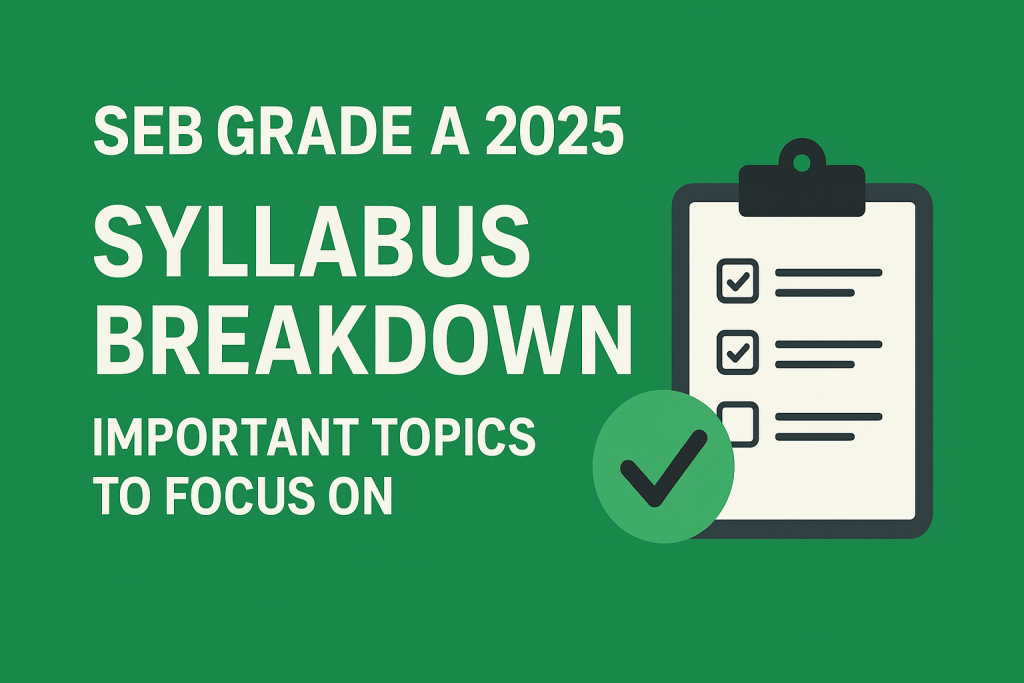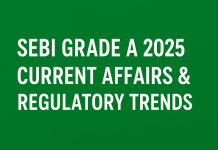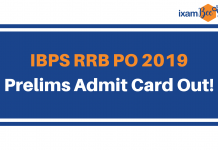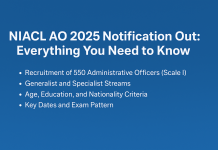The Securities and Exchange Board of India (SEBI) Grade A exam is one of the most prestigious recruitment opportunities in the financial sector. With the 2025 notification around the corner, aspirants are preparing with focus and determination.
The first step towards success is understanding the syllabus in depth, since the exam covers a wide range of subjects including finance, management, economics, law, and general awareness. In this blog, we will provide a detailed syllabus breakdown of SEBI Grade A 2025 along with guidance on important topics, structured insights, and preparation priorities.
The role of a SEBI Grade A officer is crucial for maintaining the efficiency and transparency of India’s financial markets. Officers work on framing regulations, monitoring compliance, and ensuring investor protection.
The exam is conducted in three phases—Preliminary, Mains, and Interview—and demands both conceptual clarity and analytical skill. Phase 1 screens candidates through a mix of general aptitude and subject-specific tests. On the other hand, Phase 2 examines deeper knowledge with descriptive and objective questions. After that, the final phase assesses personality and communication skills. Since the syllabus is broad, candidates need to balance objective practice with conceptual understanding.

SEBI Grade A 2025 Syllabus & Exam Structure 2025
The SEBI Grade A exam consists of two written phases and one interview stage. Phase 1 includes two papers. Firstly, there is Paper 1 which is common to all streams. Then comes Paper 2, which is specific to the stream chosen by the candidate. Phase 2 follows the same structure, with a descriptive English paper as Paper 1 and a stream-specific paper as Paper 2.
Finally, shortlisted candidates appear for an interview that evaluates confidence, awareness, and subject clarity. The exam tests a candidate’s ability to handle complex regulatory, financial, and management-related tasks in the real world.
| Phase | Papers | Content |
| Phase 1 | Paper 1 | General Awareness, English, Quantitative Aptitude, Reasoning |
| Paper 2 | Stream-specific subjects (Finance, Management, Economics, Companies Act, etc.) | |
| Phase 2 | Paper 1 | English Descriptive (Essay, Precis, Comprehension) |
| Paper 2 | Stream-specific subjects (Advanced level) | |
| Phase 3 | Interview | Personality test and communication assessment |
SEBI Grade A Syllabus 2025: Phase 1 Breakdown
The SEBI Grade A syllabus & exam pattern is the same as last year as of now. Looking at the exam, Paper 1 in Phase 1 consists of four key areas—General Awareness, English Language, Quantitative Aptitude, and Reasoning Ability. General Awareness focuses heavily on current events, especially financial and economic developments, budget highlights, and SEBI regulations.
When it comes to English Language, aspirants will have to be fully prepared for topics like comprehension, grammar, and vocabulary. On the other hand, in Quantitative Aptitude you need to know arithmetic, algebra, and data interpretation skills. Along with that, Reasoning tests logical ability through puzzles, inequalities, and syllogisms. Paper 2, on the other hand, is specific to the candidate’s stream. In this, the General stream covers Commerce, Accountancy, Finance, Costing, Management, Companies Act, Economics, and Securities Market. Clearing Phase 1 is simple if you focus on both papers.
General Awareness and English Language
The General Awareness section is dominated by financial awareness and economic updates. Candidates should focus on developments in SEBI regulations, capital markets, monetary policy changes by the Reserve Bank of India, and highlights from the Union Budget and Economic Survey.
Events from the last six to eight months are most relevant, and reading newspapers and official reports daily is essential. In English, questions focus on reading comprehension passages, error detection, para jumbles, cloze tests, and vocabulary-based tasks. Regular practice in comprehension and grammar strengthens performance, while exposure to editorials and financial articles helps improve speed and contextual understanding in the exam.
Quantitative Aptitude and Reasoning Ability
Quantitative Aptitude tests mathematical application, where data interpretation is of prime importance. Candidates encounter tables, bar charts, pie charts, and case-based problems. Arithmetic topics such as percentages, ratios, profit and loss, time, speed, and distance are also frequent.
Building accuracy and speed through timed practice sets is the best strategy here. Reasoning Ability measures logical thought processes through puzzles, seating arrangements, syllogisms, inequalities, and coding-decoding. These sections reward candidates who practice a wide range of problems since difficulty levels vary. Both Quantitative Aptitude and Reasoning serve as high-scoring sections when candidates develop accuracy under time pressure through consistent practice.
SEBI Grade A 2025 Syllabus: Stream-Specific Subjects for Paper 2
Paper 2 in Phase 1 and Phase 2 is based on core subjects relevant to the chosen stream. For the General stream, the most important areas are Commerce and Accountancy, Finance, Costing, Management, Companies Act, Economics, and the Securities Market. Commerce and Accountancy require knowledge of accounting principles, standards, financial statements, and cash flow.
Finance covers time value of money, capital budgeting, financial markets, and cost of capital. Costing includes concepts of marginal costing, variance analysis, and budgetary control. Management involves leadership, motivation, and communication theories. The Companies Act and Securities Market test knowledge of corporate governance, market instruments, SEBI regulations, and capital market dynamics.
SEBI Grade A 2025 Syllabus: Detailed View of Subject-Wise Topics
Commerce and Accountancy require a candidate to master financial reporting, accounting standards, and partnership accounts. Finance demands clarity on capital structure theories, investment decisions, and valuation.
Costing focuses on both traditional costing methods and modern approaches such as standard costing and variance analysis. Management covers classical principles from Fayol and Taylor, as well as human resource practices and behavioral theories like Maslow’s hierarchy of needs.
Economics spans microeconomic topics like demand and elasticity, macroeconomic policies on inflation and national income, and global concepts like balance of payments and trade theories. The Securities Market is critical, involving stock exchanges, derivatives, bonds, mutual funds, and regulatory developments.
| Subject | Key Focus Areas |
| Commerce & Accountancy | Accounting principles, financial statements, accounting standards |
| Finance | Time value of money, capital budgeting, financial markets, risk-return |
| Costing | Budgetary control, standard costing, variance analysis, marginal costing |
| Management | Leadership theories, motivation theories, HR basics, communication |
| Companies Act | Corporate governance, board powers, audit, MoA and AoA |
| Economics | Micro & macroeconomics, Indian economy, trade, fiscal policies |
| Securities Market | SEBI regulations, market instruments, mutual funds, derivatives |
SEBI Grade A 2025 Syllabus: Phase 2 and the Role of Descriptive English
Phase 2 builds on the Phase 1 syllabus with greater depth and complexity. Paper 1 in Phase 2 is the English Descriptive test, which evaluates a candidate’s ability to write essays, precis, and comprehend passages. This section is not only about language but also about demonstrating analytical ability and structured writing.
For example, essay topics often relate to the economy, financial markets, or regulatory frameworks, requiring both subject knowledge and communication skill. Paper 2 repeats the stream-specific subjects but at a more advanced level, often including case studies and application-based questions, demanding strong conceptual clarity and practical understanding of market scenarios.
Topic Weightage and Exam Trends
Although SEBI does not release detailed weightage officially, past exam trends reveal useful insights. In Paper 2, Securities Market and Finance consistently carry more importance compared to other subjects. These areas are also tested with application-based questions, making them crucial for preparation.
In Paper 1 of Phase 1, General Awareness holds the highest scoring potential, especially financial news and regulatory updates. Reasoning and Quantitative Aptitude follow close behind, with Data Interpretation and puzzles being frequent question types. The descriptive paper in Phase 2 has significant weightage as it demonstrates a candidate’s writing skill, which is key for a regulatory role.
Preparation Strategy Based on SEBI Grade A Syllabus 2025
To tackle the vast syllabus, candidates should adopt a structured strategy. Core subjects such as Finance, Commerce, and Securities Market should be prioritized with detailed study. Daily financial awareness updates from RBI, SEBI press releases, and newspapers like The Hindu or Economic Times are essential. IxamBee provides you with resources like SEBI Grade A mock tests, SEBI Grade A previous year papers and even its comprehensive SEBI Grade A Online Course to help your exam preparation.
Quantitative Aptitude and Reasoning should be practiced daily to build speed, while General Awareness should be revised weekly. For descriptive English, regular essay and precis writing practice is recommended. Summarizing theories in Management and Economics in self-prepared notes can aid quick revision before the exam. Consistency and time management are the keys to success.
Conclusion
The SEBI Grade A 2025 syllabus covers a wide spectrum of subjects, making it both challenging and rewarding. Success lies in mastering both technical concepts and general aptitude while also keeping up with current developments in the financial world.
With a balanced approach that emphasizes core topics like Finance, Securities Market, and Economics alongside strong preparation in aptitude and descriptive writing, aspirants can position themselves competitively. By focusing on high-weightage areas, practicing previous year papers, and refining writing skills, candidates can build the confidence needed to excel in this highly competitive examination.
ixamBee specializes in providing expert guidance and resources for banking exams 2025, ensuring that you are well-prepared for the Upcoming Bank Exams like RBI Grade B, NABARD Grade B, IBPS SO, and more. Our courses align with the bank exam calendar 2025, covering all the essential topics. With a focus on the upcoming bank jobs, our Previous Year Papers, BeePedia, SSC CGL, SSC CHSL, SSC MTS and other Mock Tests are designed to help you excel in upcoming banking exams.
Also Read:
EMRS Staff Selection Exam 2025: Accountant Post – Your Complete Guide
EMRS Staff Selection Exam 2025: Complete Guide for Aspirants
EMRS Hostel Warden Recruitment 2025: Vacancies, Eligibility & Syllabus















